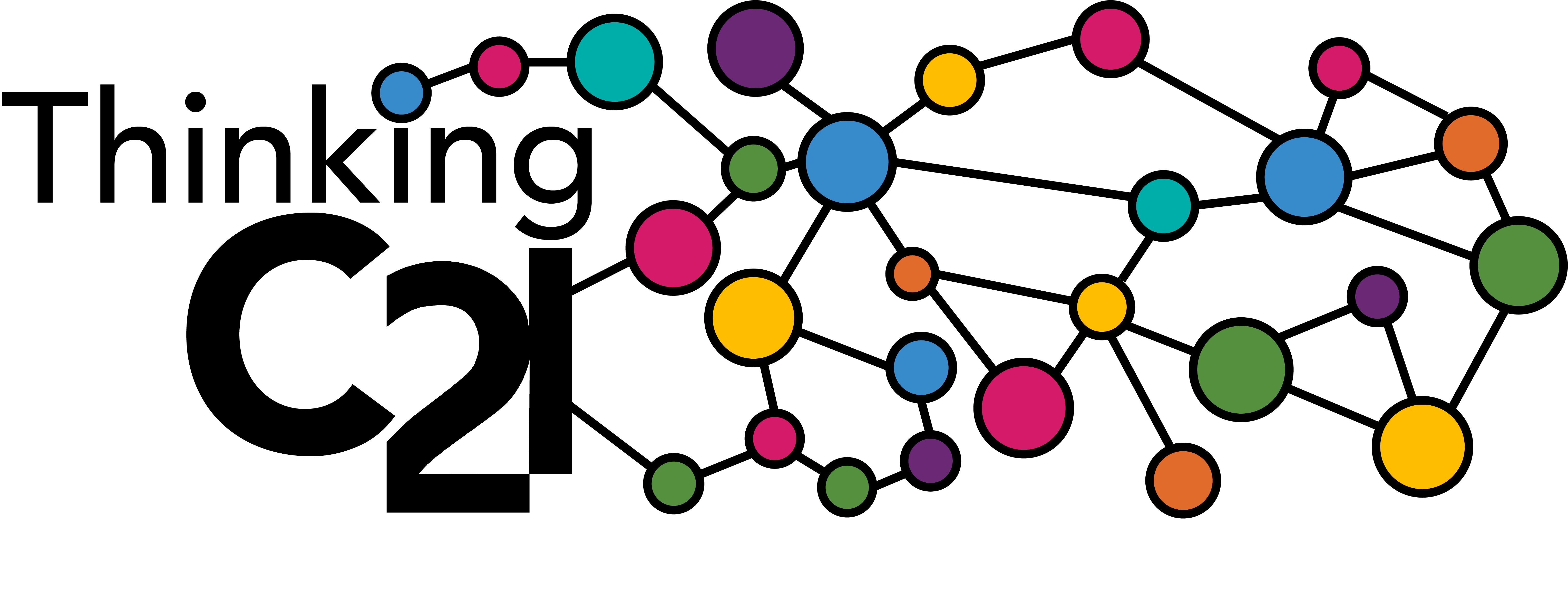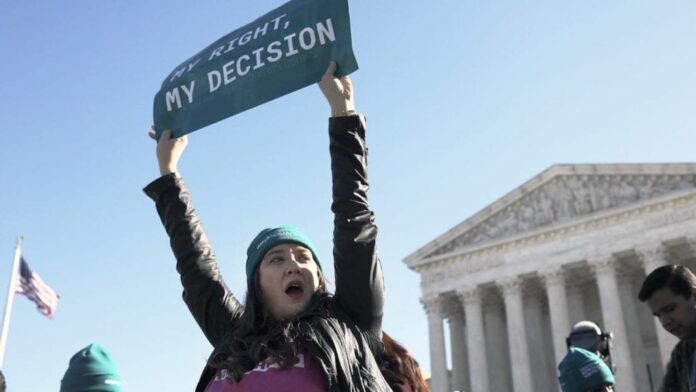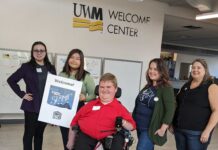By Danielle Koepke and Kristiana Perleberg
The reproductive justice movement has been gaining additional momentum over the last few months due to the supreme court decision that federally dismantled Roe v. Wade this summer and sent decision-making power concerning abortion to individual states. In Wisconsin, this has meant reverting back to a law from 1849 that criminalizes abortions, unless it is to save a mother’s life. While there is a lawsuit pending to throw that law out in favor of post-1973 laws, it has not yet been resolved. The landscape of abortion care has dramatically changed across the nation and the future of abortion care is unclear. This fight over the bodies of those who can become pregnant is not new. And reproductive justice is not a new concept, nor is it solely about abortion. Historically, marginalized people such as Black women, Indigenous Women, and Women of Color have fought for a range of reproductive rights (Silliman et al). In the early 90s, Black women began more formally organizing due to continued exclusion from the [white] women’s reproductive rights movement. They claimed that the racial oppression and discrimination they faced as Black women were unique within the women’s movement, and they formed an organization, SisterSong, to be a collective for Black, Indigenous, and People of Color to stand together in the fight for more expansive reproductive rights.
Loretta Ross and Rickie Solinger, two women who have both done theoretical work to formalize the framework of reproductive justice, define reproductive justice as an expansive movement with four important principles: “(1) the right not the have a child; (2) the right to have a child; (3) the right to parent children in safe and healthy environments. In addition, reproductive justice demands sexual autonomy and gender freedom for every human being” (9). Unlike the mainstream women’s rights movement, which has historically harnessed its fight for abortion to the right to privacy and to freedom of choice, reproductive justice is based on a universal human rights framework. As such, the principles of reproductive justice are basic human rights for every person. This draws attention to marginalized voices, so that the concerns of Black women, Indigenous women, Women of Color, and Trans people can be centered. It also makes visible the connections between reproductive issues and other community concerns such as access to quality healthcare, good education, fair housing, humane wages, safe and healthy neighborhood environment, immigrant protection, and financial support for families (Ross).
On October 19th, 2022, the University of Wisconsin-Milwaukee’s Center for 21st Century Studies partnered with the university’s Reproductive Justice Collaboratory to host a Post-Roe Research Discussion. The goal of the discussion was to offer guidance for researchers engaging with topics such as abortion care, reproductive health and rights, and other related areas of study. The panel was facilitated by two leaders of the Collaboratory, Dr. Novotny and Dr. Bloom-Pojar, and featured presentations by Donna McGee (Legal Affairs) and Sam Wescott (OSP) on new considerations to make for researchers whose work intersects with issues of abortion, reproductive health and rights, reproductive justice, and community activist work. The panelists provided helpful information on continued policies regarding advocacy, free speech, and what counts as public records in academia. For example, as it always has been advised, researchers must avoid using state university resources (including their computers and email accounts) for any kind of lobbying or political activity. Those who also teach were advised to refer students to the Student Health and Wellness Center (Formally Norris Health Center) with any medical questions, as has always been the case. Much of what they advised was that nothing had changed, yet, and that everything is really in the grey. Overall, the discussion offered beneficial reminders of current policies, but not much security for what may be to come.
As was expressed at the event (which can be found on the Century for 21st Century Studies’ YouTube channel), we know that the future of reproductive access and care is uncertain, and the most recent election results only work to further reinforce this. What we do know is that data privacy concerns in this field are at the forefront of many researchers’ (and likely students’) minds, which may lead to a shift and decrease in faculty recruitment, student enrollment, and, consequently, funding for research. For those who are continuing to do research in the field of humanities research, it is worth noting that there are federal protections in place, including HIPAA, FERPA, and the NIH Certificates of Confidentiality, which all relate to data privacy, including protecting identifiable research data collected from the legal process; however, these are not blanket protections, and the NIH website more fully defines the limitations of these protections. While the implications of reproductive healthcare research in a post-Roe world are not fully realized at this point, the UW System has also provided this FAQ document on Dobbs to help navigate some of the difficult questions we may encounter along the way.
In addition, UWM’s Marketing & Communications Guidance on Statements on Current Events and Issues provides this guidance for how those affiliated with the University should mindfully make statements on current events. Taking up divisive and political issues in research is hardly a new practice in academia, so much of this information should be familiar (for example, clearly stating that you are not speaking on behalf of the University, and that all represented views are your own). While this posted guidance is useful, UWM’s Office of Legal Affairs welcomes any questions you may have surrounding the uncertainty of these topics through their intake process.
While this panel provided practical information around academic rights to free speech in post-Roe, the limitations that come with conducting research related to reproductive health, and other resources available to navigate protections surrounding increased hostility and potential threats when working with certain communities, this conversation is ongoing. There are plans to host another panel discussion in the spring to give students information from campus resources such as the Women’s Health Center, The LGBTQ Resource Center, The Dean of Students, and the Student Health and Wellness Center. Details will be shared by C21 when they are finalized. As the reproductive health landscape continues to shift, more conversations like this panel are sure to be held. One thing for certain is that this important body of research is going to continue to evolve alongside the field.
Danielle Koepke (she/her) is a PhD Candidate at the University of Wisconsin-Milwaukee in the Public Rhetorics and Community Engagement program. Her areas of study include cultural rhetorics, reproductive justice, and feminist digital design. She is interested in digital projects that support local community advocacy on issues that intersect with reproductive justice and has worked for the last two years to highlight the work of the promotores de salud (health promoters) within Latinx communities across Wisconsin. Her dissertation complicates what it means to enact an ethic of care for digital storytelling projects and calls scholars to be critically self-aware of how they care for the stories and the people involved in their community-engaged projects.
Kristiana Perleberg (she/her) is a PhD student in Public Rhetorics and Community Engagement at the University of Wisconsin-Milwaukee. She considers herself an aspiring critical-creative scholar, meaning she wants to collaborate and write with folks largely outside of academia in nontraditional ways. While her background is in Technical and Professional Communication, her doctoral research has been focused on reproductive injustices and issues of access in Milwaukee. As the field of technical communication continues on this new trend of social justice and activism, she hopes to continue to be a part of this conversation that prioritizes historically marginalized and silenced voices and language practices.





